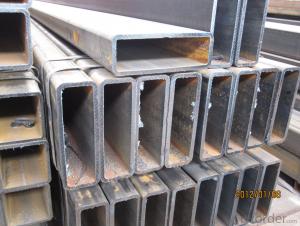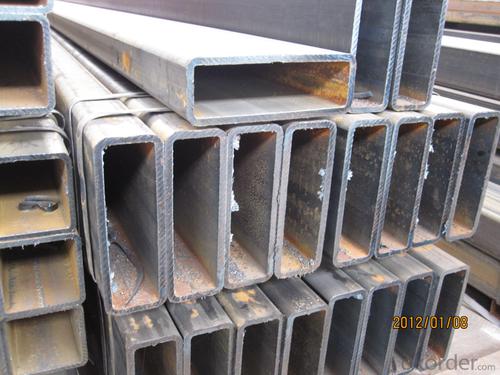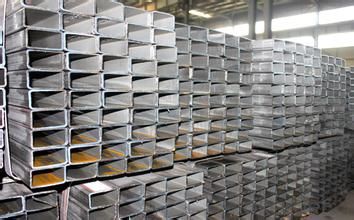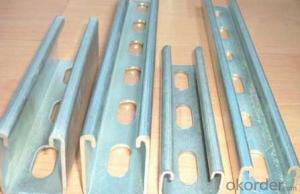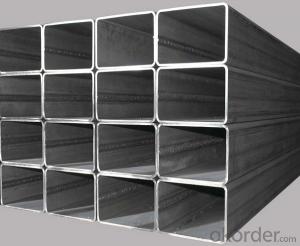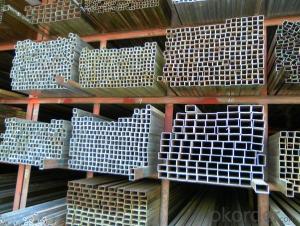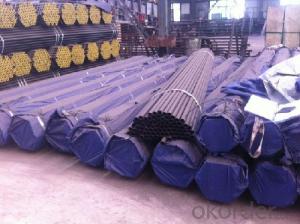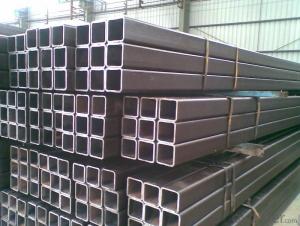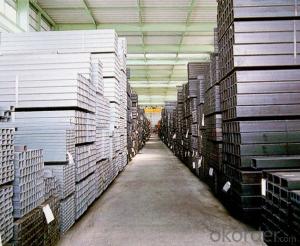Cold Formed Square Hollow Section
- Loading Port:
- China Main Port
- Payment Terms:
- TT or LC
- Min Order Qty:
- 25-35 m.t.
- Supply Capability:
- -
OKorder Service Pledge
OKorder Financial Service
You Might Also Like
Quick Details
| Thickness: | 1.0 - 35 mm | Section Shape: | Square | Outer Diameter: | 20*20-600*600 |
| Place of Origin: | Shandong China (Mainland) | Secondary Or Not: | Non-secondary | Application: | Structure Pipe |
| Technique: | Cold Rolled | Certification: | CE | Surface Treatment: | oil,paint |
| Special Pipe: | Thick Wall Pipe | Alloy Or Not: | Non-alloy | Name: | Square Hollow Steel Pipe/Tube |
| Shape: | Square/Rectangular | Yield Strength: | 360-380Mpa | Tensile Strength: | 560-580Mpa |
| Elongation: | 24-28% | Bend Test: | Qualified | Impact Value: | V-notch |
| Grade: | 20#,45#,16Mn,A210,St45,Q235,Q345,Q195,Q215,10#-45#,A53-A369,ST35-ST52,Q195-Q345 | Standard: | JIS G3465-2006,JIS G3466,GB/T 3094 |
Specifications
OD:15X15-800X800MM,20X30--600X800MM
Thick.:1.0--35.0MM
Steel Hollow Section Image
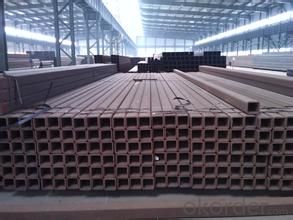
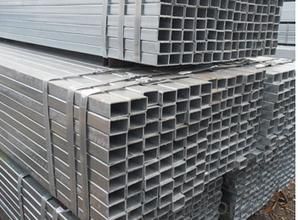
FAQ of Steel Hollow Section
①How is the quality of your products?
Our products are manufactured strictly according to national and internaional standard, and we take a test
on every pipe before delivered out. If you want see our quality certifications and all kinds of testing report, please just ask us for it.
Guaranteed: If products’ quality don’t accord to discription as we give or the promise before you place order, we promise 100% refund.
②How about price?
Yes, we are factory and be able to give you lowest price below market one, and we have a policy that “ for saving time and absolutely honest business attitude, we quote as lowest as possible for any customer, and discount can be given according to quantity”,if you like bargain and factory price is not low enough as you think, just don’t waste your time.Please trust the quotation we would give you, it is professional one.
③Why should you chose us?
Chose happens because of quality, then price, We can give you both.Additionally, we can also offer professional products inquiry, products knowledge train(for agents), smooth goods delivery, exellent customer solution proposals.Our service formula: good quality+good price+good service=customer’s trust
SGS test is available, customer inspection before shipping is welcome, third party inspection is no problem.
Any question, pls feel free to contact us !
- Q: Can steel pipes be used for the construction of high-rise buildings?
- Yes, steel pipes can be used for the construction of high-rise buildings. Steel pipes offer several advantages such as high strength, durability, and resistance to fire, making them a suitable choice for supporting the structural load and ensuring the stability of tall structures. Additionally, steel pipes can be easily fabricated and installed, providing flexibility in design and construction.
- Q: What is the maximum allowable deflection for steel pipes?
- The maximum allowable deflection for steel pipes depends on various factors such as pipe diameter, wall thickness, material strength, and the intended application. It is typically determined by industry standards and specific engineering considerations.
- Q: How are steel pipes measured?
- Steel pipes are typically measured by their outer diameter (OD) and wall thickness. The OD is measured using a caliper or tape measure, while the wall thickness is determined using specialized tools like ultrasonic gauges or micrometers. These measurements are crucial for determining the pipe's size, strength, and suitability for various applications.
- Q: How do you join two steel pipes together without welding?
- There are various ways to join two steel pipes together without welding. Mechanical fittings or connectors are commonly used for this purpose. These fittings are designed to securely connect pipes without the need for welding. Here are a few options you can explore: 1. Threaded Fittings: You can use threaded fittings, which have male and female threads that allow you to screw them together. To join the pipes, you will need to cut the ends of the pipes to create male and female threads. Apply thread sealant to ensure a tight and leak-free connection. 2. Compression Fittings: Another option is compression fittings, which consist of a nut, a compression ring, and a compression seat. These fittings create a tight seal by compressing the ring against the seat. Simply slide the compression ring and nut onto the pipe ends, and use a wrench to tighten the nut until a secure connection is formed. 3. Flange Connections: Flange connections involve using flanges, which are flat plates with bolt holes, to join the pipes. The flanges are bolted together using gaskets to create a tight seal. This method is commonly used for larger diameter pipes or in situations where frequent disassembly may be necessary. 4. Grooved Couplings: Grooved couplings are another option, particularly in plumbing and fire protection systems. They utilize a mechanical coupling housing with two grooved ends that fit over the pipe ends. The coupling is then secured using bolts or screws, which tighten the housing around the pipe ends, creating a secure connection. Before deciding on a method, it is crucial to consider the specific requirements of your application, such as the pipe diameter, pressure, and temperature. Additionally, ensure that the chosen method complies with relevant industry standards and regulations to ensure a safe and reliable connection.
- Q: Can steel pipes be used for underground sewage systems?
- Yes, steel pipes can be used for underground sewage systems. Steel pipes are durable, resistant to corrosion, and can withstand high pressure, making them suitable for transporting sewage underground. However, proper protective coating and maintenance are essential to prevent any potential corrosion or degradation over time.
- Q: How are steel pipes insulated for thermal purposes?
- Various methods are commonly employed to insulate steel pipes for thermal purposes. One method frequently utilized involves wrapping the pipes with insulation materials like fiberglass, mineral wool, or foam. These materials act as a barrier between the pipe and its surroundings, effectively preventing heat transfer or loss. To ensure the proper insulation of steel pipes, the insulation material is typically tightly wrapped around the pipe, leaving no gaps or openings for heat to escape. Adhesive tapes or metal bands are then used to secure the insulation in place. In addition to external insulation, internal insulation can also be applied to steel pipes. This involves placing insulation material inside the pipe, creating a protective layer against heat loss or gain. Internal insulation is commonly utilized in situations where the pipe carries hot fluids or gases. Moreover, certain steel pipes are designed to incorporate a built-in insulation layer. These pipes, known as pre-insulated pipes, already come equipped with insulation material integrated into their structure. The insulation layer is typically made of foam or mineral wool and is covered with a protective outer layer, ensuring effective thermal insulation. The insulation of steel pipes for thermal purposes plays a critical role in various industries, including oil and gas, HVAC, and plumbing. Proper insulation helps to maintain the desired temperature of fluids or gases flowing through the pipes, preventing energy loss and enhancing overall efficiency.
- Q: Can steel pipes be used for electrical conduit systems?
- No, steel pipes cannot be used for electrical conduit systems as they are conductive and can pose a safety risk. Non-metallic conduits, such as PVC or fiberglass, are commonly used for electrical wiring to ensure insulation and protect against electrical hazards.
- Q: Are steel pipes suitable for underground sewage systems?
- Yes, steel pipes are suitable for underground sewage systems. They are durable, strong, and resistant to corrosion, making them a reliable choice for carrying sewage underground. Additionally, steel pipes have a long lifespan and can withstand the pressure and weight of the surrounding soil, making them a suitable option for underground sewage systems.
- Q: What is the outer diameter and wall thickness of DN40 steel pipe?
- DN40 pipe diameter 48.3mm diameter, allowable deviation of plus or minus 0.5mm it depends on what you have, the outside diameter of 45, there are other dimensions, you can see the manual
- Q: What are the different methods of heat treatment for steel pipes?
- Some of the different methods of heat treatment for steel pipes include annealing, normalizing, quenching, and tempering. Annealing involves heating the steel pipe to a specific temperature and then slowly cooling it to make it softer and more ductile. Normalizing is a similar process but involves air cooling instead of slow cooling. Quenching is a rapid cooling process that results in a hardened and brittle steel pipe. Tempering follows quenching and involves reheating the steel pipe to a lower temperature to reduce the brittleness and improve its toughness.
Send your message to us
Cold Formed Square Hollow Section
- Loading Port:
- China Main Port
- Payment Terms:
- TT or LC
- Min Order Qty:
- 25-35 m.t.
- Supply Capability:
- -
OKorder Service Pledge
OKorder Financial Service
Similar products
Hot products
Hot Searches
Related keywords
